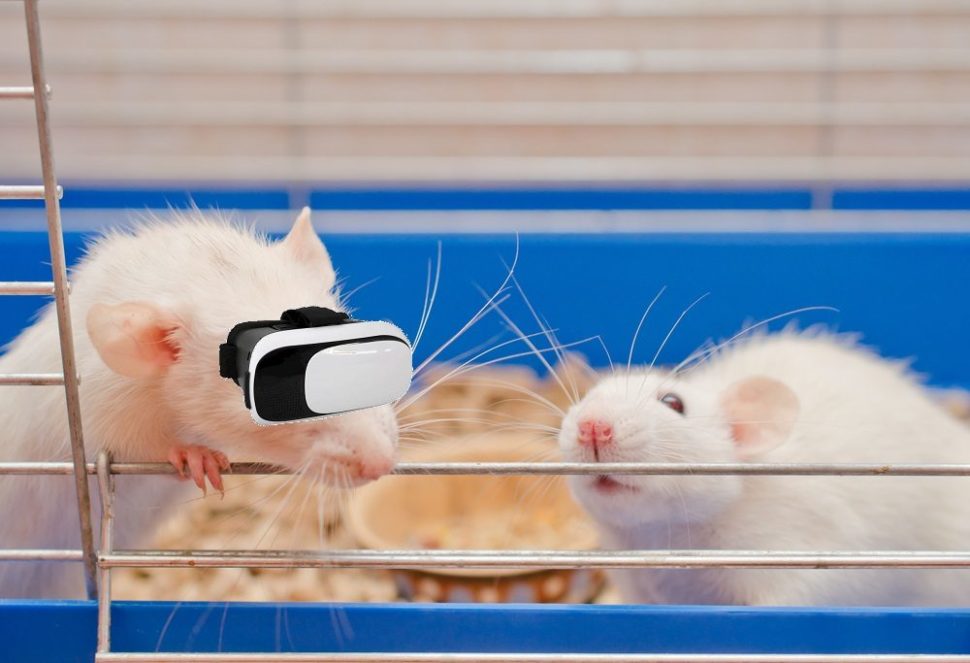New VR technologies are allowing living animals to interact with computer controlled stimulus. How useful are the observations?
If we could dress up as a convincing elephant, we might figure out why elephants are afraid of mice. If we could strap on tentacles and live underwater, we might discover why octopus mate in such unusual and tragic ways. More importantly: understanding these impulses could lead to better understanding of animals, humans, and potentially artificial intelligences as well.
#VR simulated #animals talk to real animalsClick To TweetFruit Flies & Mice Play VR Video Games
In today’s “Eye on Sci-fi” feature, Edgy Labs focuses on an experiment involving two unlikely teammates: fruit flies and virtual reality.
Meet FreemoVR: a VR for “freely moving animals”. In this instance, those animals happen to be fruit flies and mice. While instituting experimental control over the subject’s visual experiences, it tracks the subject’s naturally occurring behavior. The VR tech uses gaming technology and spatial calibration of PC displays to produce accurate images from the subject’s perspective.

Fruit flies exhibited real-world behaviors such as flying around pillars. Mice displayed preferences for pathways closer to the floor vs. higher ground. All of these results came about as a result of VR rendered environments.
The hope is to recreate the neural signals real animals exhibit when responding to given stimulus.
To quote the article in Nature, “FreemoVR technology facilitates detailed investigations into neural function and behavior through the precise manipulation of sensorimotor feedback loops in unrestrained animals.“
Beyond the initial results, the company also plans on looking into the differences in brain waves. Eventually, they will compare brain activity from real-world experiences to the VR experience brain activity.
Moral Questions
Many fear what animal testing will eventually cause in the future. After all, many companies (especially in the cosmetics realm) has discontinued animal testing. If you extrapolate this into the future, the question is no longer what is we tested on animals. The question becomes: what if we test on humans.
Even if you substitute organic life for AI, the moral implications are enormous. The 2005 Michael Bay film The Island asks these questions. Though alleged to be a ripoff of the movie Parts the Clonus Horror, the film focuses on Ewan Mcgregor‘s character. He discovers that he (and all of his community) are clones for influential people in the real world.
Their whole world is a lie and they are lab rats for testing and harvesting. Does that render their experiences in that controlled facility false positives?
Fabricated Memories Yield Legitimate Responses
Despite the question of morality, the experiences the characters have in “the facility” are still very real. The fact that they were manufactured didn’t affect the reality of the reactions and experiences.
Similarly, the fruit flies and mice in the experiment exhibited behaviors they would in real life in the VR world. Further questions about the results of this experiment include treatment for those with depression. But potential drawbacks could be cost or accessibility.

Further questions about the results of this experiment include treatment for those with depression. But potential drawbacks could be cost or accessibility, as touched on in our recent Wonder Woman article.



















Comments (0)
Most Recent